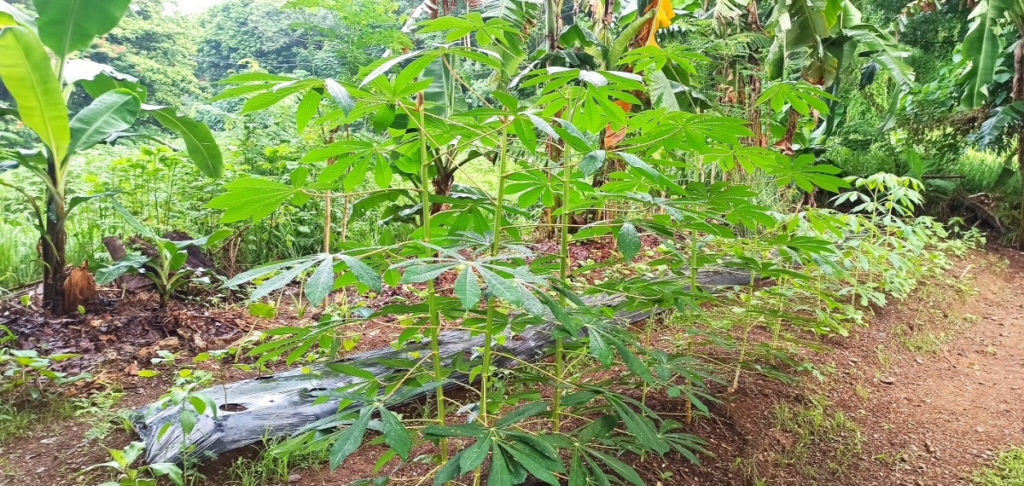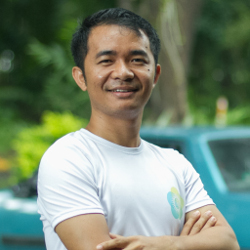
Ignatius calls us to find God in everything and do godly deeds. In other words, we are invited to see all things new in Christ. The Spirit inspires, moves, and renews us to see, judge, and act accordingly. Ignatius encountered many grace-filled moments in his conversion. One of them was while he was recovering from an injury that left him bed-ridden, and another was his spiritual transformation in Manresa. In our present time and space, there are two very concrete and relevant realities that call for our reflection: our face mask culture, and our instant, throw-away plastic culture.
Covid-19 hit the world in a devastating way. It brought so much suffering and deaths, and continues to do so with many countries going through second, third, and fourth waves, as vaccines are slowly being rolled out. Amid this chaos, a simple, doable, and responsible thing we can do as individuals and as a community is to wear a mask to protect one another from the virus. Interestingly, mask wearing makes us realise the importance of caring for one’s self in order to care for others. Because we care and love others, we wear a mask and practice social distancing as a precaution and an act of solidarity for the common good.
The coronavirus pandemic reflects our own interrelatedness as one humanity and dependency with nature, other living creatures, and all of Earth’s biodiversity. Pope Francis uses the term “common home” in Laudato si’. We are responsible not just for our own health, but also those around us. Scientists and doctors have identified the nose and mouth as spreaders of the virus. There is consensus that wearing a mask is effective against spreading the disease. Countries are sharing in the responsibility of ensuring that all people get access to the vaccines. Humanity is rediscovering the value of sharing and caring.
In the early months of the pandemic, we came to once again appreciate food, something that is often neglected when we have it in abundance. The crisis bared how humanity owes a lot to the farmers and those who are directly and indirectly involved in the food industry. People flocked into supermarkets and fueled panic buying, prompting stores to limit the quantity of goods being sold to each customer. There was a mix of generosity and fear as people were moved to give alms but were also held back by the fear of infection.
Besides Covid, the other issue that has generated massive concern in recent times is plastic pollution. The invention of plastic has indeed revolutionized the world. Plastics have replaced other packaging materials for their convenience and practicality. Only after a century did we start to realize their side effects in our backyards, drainage systems, rivers, and seas, including in the animals we breed. Unaware of their impact, we are drawn to their utility and attractive packaging. As a result, millions of tons get thrown away and very little of it gets recycled. People even started burning plastic, aggravating its side effects.
Nonetheless, there are many attempts to find solutions to the plastic invasion. The 4Rs (reduce, reuse, recycle, and reject) have been advocated, although the results are still quite minimal. There is much room for policies, ideas, and actions. The Earth is telling us that we are responsible not just for our own families, but also for our neighborhood, office and parish surroundings, the purchases we make, the food we consume, and the waste we produce. Pope Francis reminds us that “God always forgives, people occasionally forgive, but nature never forgives.” Given this new perspective, we are called to be part of the solution in our own individual capacities. The more we have, the greater our responsibility to be part of the solution.
Ultimately, we all are invited to integrate and convert our 3Hs (Head, Heart, and Hands). The internet has boosted our capacity for knowledge with greater access to books, social media, newspapers, magazines, and other information materials. The world has become a global village. Telecommunications enable us to access any information we want. But apart from sound knowledge and understanding, passion also plays a big role. It gives us energy and motivation. Passion helps people to make genuine commitments in life, to love and serve, to sacrifice, and to strive for the truth (the universal truth). Then the deeds become real and concrete. Life is no longer lived in illusion and superficiality, but authentically. If we truly love and care for our common home, now is the time to see and live in the newness of Christ.

Fr Paul Tu Ja SJ is assistant parish priest of St Michael’s parish in Nanhlaing village, Banmaw Diocese, Kachin State, Myanmar



Leave a Reply